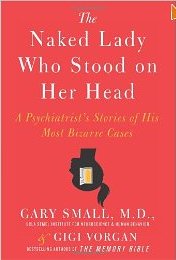November 22nd, 2010 by Bryan Vartabedian, M.D. in Better Health Network, Health Policy, News
No Comments »

A new policy on professionalism in the use of social media was [recently] adopted by the American Medical Association (AMA). The AMA Office of Media Relations was kind enough to share a copy of the policy:
The Internet has created the ability for medical students and physicians to communicate and share information quickly and to reach millions of people easily. Participating in social networking and other similar Internet opportunities can support physicians’ personal expression, enable individual physicians to have a professional presence online, foster collegiality and camaraderie within the profession, provide opportunity to widely disseminate public health messages and other health communication. Social networks, blogs, and other forms of communication online also create new challenges to the patient-physician relationship. Physicians should weigh a number of considerations when maintaining a presence online:
(a) Physicians should be cognizant of standards of patient privacy and confidentiality that must be maintained in all environments, including online, and must refrain from posting identifiable patient information online.
(b) When using the Internet for social networking, physicians should use privacy settings to safeguard personal information and content to the extent possible, but should realize that privacy settings are not absolute and that once on the Internet, content is likely there permanently. Thus, physicians should routinely monitor their own Internet presence to ensure that the personal and professional information on their own sites and, to the extent possible, content posted about them by others, is accurate and appropriate. Read more »
*This blog post was originally published at 33 Charts*
November 5th, 2010 by Lucy Hornstein, M.D. in Better Health Network, Opinion, True Stories
1 Comment »

I’ve had a longstanding policy in my office that routine prescription refills will only be addressed during regular office hours. No evenings; no weekends; if you need a refill of your long-term chronic medications, you need to call during regularly scheduled office hours, five days a week. You can leave a message if you like, but you should not expect us to call in the medication until the office is open.
The main reason for this policy has always been medical: prescription medication requires appropriate monitoring. From the moment I hung out my shingle, I’ve made it my habit always to write enough refills on your medication to last until the next time I need to see you. In all likelihood if you need a refill, what you really need is a visit.
The logical reason for the policy is the need to consult the medical record before authorizing refills. And when those records are contained on bits of dead trees on shelves in the office, there’s no way I can access them if I’m not physically there. I’ve been known to drive out to the office at decidedly odd hours for the express purpose of consulting those records so that I can provide appropriate care to my patients. That has always been the bottom line for me, and always will. Read more »
*This blog post was originally published at Musings of a Dinosaur*
October 17th, 2010 by Dinah Miller, M.D. in Better Health Network, Book Reviews, Opinion, True Stories
No Comments »


 I just finished reading Dr. Gary Small’s book, The Naked Lady Who Stood On Her Head.
I just finished reading Dr. Gary Small’s book, The Naked Lady Who Stood On Her Head.
In the final chapter of the book, Dr. Small talks about his mentor, friend, and father figure who’s mentioned throughout the book. The mentor approaches him on the golf course, where they meet to talk, and says he needs psychotherapy and Small is the man to do it. The author is surprised, hesitant, and a bit uncomfortable with the demand (it comes as more than a request.) His wife likens it to the need for a plumber or a dentist, and Dr. Small takes on the task. The mentor calls all the shots: Where the meetings will be, what pastry they will eat, the form of his payment. The author initially misses the diagnosis and uses this as an example of how one can be blinded.
So is it okay for a friend to treat a friend? Read more »
*This blog post was originally published at Shrink Rap*
June 21st, 2010 by KevinMD in Better Health Network, Health Policy, Health Tips, News, Opinion
No Comments »

Should you friend your doctor on Facebook? It’s a question that’s gaining increasing relevance as Facebook increases its social networking dominance. I’ve touched upon the issue in the past. So has the New England Journal of Medicine.
Washington, DC, physician Katherine Chretian gives her take on the issue in a recent USA Today op-ed. She is an expert of the Facebook-medicine intersection, having authored a JAMA study on the issue.
She says, no, doctors should not be friending their patients:
Having a so-called dual relationship with a patient — that is, a financial, social or professional relationship in addition to the therapeutic relationship — can lead to serious ethical issues and potentially impair professional judgment. We need professional boundaries to do our job well.
Furthermore, there’s the little matter of patient privacy and HIPAA. I wasn’t aware of this, but simply becoming Facebook friends with patients can infringe upon uncertain ground. Read more »
*This blog post was originally published at KevinMD.com*
















